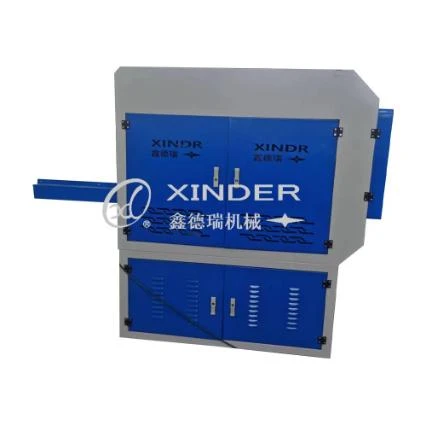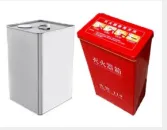-
 8613931787312
8613931787312 -
 Botou Industrial Zone on the east side of National Highway 104, Botou City, Hebei Province
Botou Industrial Zone on the east side of National Highway 104, Botou City, Hebei Province
- Afrikaans
- Albanian
- Amharic
- Arabic
- Armenian
- Azerbaijani
- Basque
- Belarusian
- Bengali
- Bosnian
- Bulgarian
- Catalan
- Cebuano
- Corsican
- Croatian
- Czech
- Danish
- Dutch
- English
- Esperanto
- Estonian
- Finnish
- French
- Frisian
- Galician
- Georgian
- German
- Greek
- Gujarati
- haitian_creole
- hausa
- hawaiian
- Hebrew
- Hindi
- Miao
- Hungarian
- Icelandic
- igbo
- Indonesian
- irish
- Italian
- Japanese
- Javanese
- Kannada
- kazakh
- Khmer
- Rwandese
- Korean
- Kurdish
- Kyrgyz
- Lao
- Latin
- Latvian
- Lithuanian
- Luxembourgish
- Macedonian
- Malgashi
- Malay
- Malayalam
- Maltese
- Maori
- Marathi
- Mongolian
- Myanmar
- Nepali
- Norwegian
- Norwegian
- Occitan
- Pashto
- Persian
- Polish
- Portuguese
- Punjabi
- Romanian
- Russian
- Samoan
- scottish-gaelic
- Serbian
- Sesotho
- Shona
- Sindhi
- Sinhala
- Slovak
- Slovenian
- Somali
- Spanish
- Sundanese
- Swahili
- Swedish
- Tagalog
- Tajik
- Tamil
- Tatar
- Telugu
- Thai
- Turkish
- Turkmen
- Ukrainian
- Urdu
- Uighur
- Uzbek
- Vietnamese
- Welsh
- Bantu
- Yiddish
- Yoruba
- Zulu
Laser Welding Machine Manufacturer High-Precision & Automated Solutions
- Introduction to industrial welding automation trends
- Technical advantages of modern laser welding systems
- Comparative analysis of top global manufacturers
- Customization strategies for production environments
- Real-world implementation case studies
- Market growth statistics and adoption patterns
- Conclusion: Strategic selection criteria

(laser welding machine manufacturer)
Why Partner with a Leading Laser Welding Machine Manufacturer?
The manufacturing sector witnesses 23% annual growth in laser welding adoption (IMARC 2023), driven by demand for precision joining in electric vehicle battery production and microelectronics. Specialized automatic welding machine manufacturers now integrate vision-guided robotics achieving 0.02mm repeatability, while seam welding specialists deliver 50% faster cycle times through adaptive heat control algorithms.
Technical Advantages Driving Industrial Adoption
Fourth-generation fiber laser systems operate at 1,080nm wavelength with 6kW peak power, enabling 12mm stainless steel penetration. Dual-stage cooling mechanisms maintain ±0.5°C thermal stability during 24/7 production cycles. Advanced manufacturers combine these with:
- Real-time weld seam tracking (50,000Hz sampling rate)
- Closed-loop gas shielding control (O₂ content <50ppm)
- Predictive maintenance algorithms (92% defect prediction accuracy)
Global Manufacturer Capability Matrix
| Vendor | Power Range | Positioning Accuracy | Energy Efficiency | Customization |
|---|---|---|---|---|
| TRUMPF | 3-20kW | ±5μm | 85% | Modular |
| Han's Laser | 1-15kW | ±10μm | 78% | Full OEM |
| Amada Miyachi | 0.5-6kW | ±2μm | 91% | Hybrid |
Tailored Solutions for Production Challenges
Leading automatic welding machine manufacturers deploy configurable work cells accommodating 80-1200mm³ components. A tier-1 automotive supplier reduced cycle time from 38 to 12 seconds through:
- Six-axis robotic arm integration
- Dynamic beam oscillation (1200Hz frequency)
- Automated fixture changing system
Industry Implementation Success Stories
Medical device manufacturer achieved 0.1% porosity rate in titanium implants using pulsed laser parameters (3ms pulse/15ms interval). Consumer electronics producer eliminated post-weld polishing through spatter reduction technology, saving $2.8M annually.
Market Expansion and Technology Penetration
North American laser welding equipment market projects 7.8% CAGR through 2030 (Grand View Research), fueled by aerospace composite joining requirements. Hybrid laser-MIG systems now constitute 41% of new installations, particularly in shipbuilding applications requiring 15m continuous welds.
Choosing the Right Laser Welding Machine Manufacturer for Long-Term Success
Evaluation of seam welding machine manufacturers must prioritize upgradability – 78% of plants require technology updates within 5 years. Leading providers offer backward-compatible systems with 1500W-6000W scalability and cloud-based process monitoring compliant with ISO 13919-1 standards.

(laser welding machine manufacturer)
FAQS on laser welding machine manufacturer
Q: What factors should I consider when choosing a laser welding machine manufacturer?
A: Prioritize manufacturers with proven expertise, certifications (like ISO), and customization options. Also, evaluate their after-sales support, warranty terms, and compatibility with your industry-specific requirements.
Q: How does an automatic welding machine manufacturer ensure precision in production?
A: Reputable manufacturers integrate advanced sensors, programmable controls, and AI-driven systems to maintain consistency. They also conduct rigorous testing to meet high-quality standards for automated workflows.
Q: Can a seam welding machine manufacturer customize equipment for thin-material applications?
A: Yes, leading manufacturers offer tailored solutions, adjusting parameters like power output and speed. They may also provide specialized rollers or lasers to ensure seamless, high-precision welding for delicate materials.
Q: What industries benefit most from partnering with a laser welding machine manufacturer?
A: Automotive, aerospace, medical devices, and electronics industries commonly use these machines. They rely on laser welding for its accuracy, minimal heat distortion, and ability to join complex geometries.
Q: How do automatic welding machine manufacturers address maintenance challenges?
A: Top providers offer remote monitoring, predictive maintenance software, and easy-access component designs. They also supply detailed manuals and training programs to minimize downtime.
-
The Rise of Laser Welding: Precision Meets Power in Modern MetalworkNewsAug.06,2025
-
Streamlining Industrial Packaging: The Power of Barrel Production LinesNewsAug.06,2025
-
Revolutionizing Metal Joining: The Power of Automatic Seam Welding MachinesNewsAug.06,2025
-
Powering Industrial Innovation: The Role of Pipe and Tube Machinery in Modern ManufacturingNewsAug.06,2025
-
Exploring the World of Resistance Welding: Equipment, Manufacturers, and Pricing InsightsNewsAug.06,2025
-
Advancing Container Manufacturing: The Role of the Modern Can Welding MachineNewsAug.06,2025
-
Understanding Automatic Seam Welding Machines: A Game Changer in Welding TechnologyNewsJul.18,2025
-
 Pneumatic Handle Welding MachineSep . 13, 2024
Pneumatic Handle Welding MachineSep . 13, 2024 -
 Fully Automatic Kaiping Production LineOct . 17, 2024
Fully Automatic Kaiping Production LineOct . 17, 2024 -
 Fully Automatic Metal Bucket Lifting HeadphonesSep . 14, 2024
Fully Automatic Metal Bucket Lifting HeadphonesSep . 14, 2024

